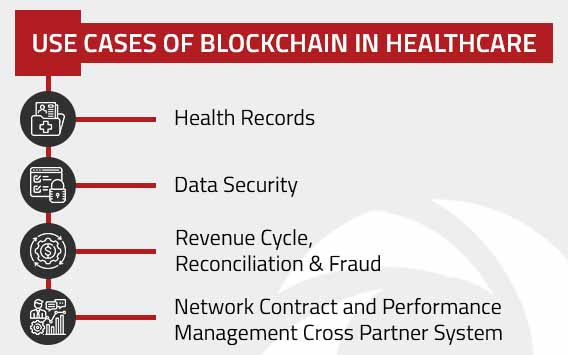Healthcare IT | 14 Sep 2022 | 6 min
Blockchain: Revolutionizing Healthcare Management Technology

Blockchain technology in healthcare has the potential to transform healthcare, placing the patient at the center. Organizations have started to invest in research and POCs as blockchain has the potential to connect fragmented systems to generate insights and to better assess the value of care. According to Gartner, about 20% of healthcare providers and payers will have use cases for healthcare settings; the business value addition of this emerging blockchain technology will exceed $176 billion by 2025, and $3.1 trillion by 2030.
A blockchain-powered system can dramatically simplify the data acquisition process. It allows the user to upload data directly to the system and give an individual permission to use his data if it was bought through the system using a transparent price formula determined by data value model. In addition, it guarantees fair tracking of all data usage activity.
Let us look at some use cases where blockchain has been making an impact in healthcare:

There are a few things which healthcare CIOs must consider while adopting blockchain into their organization, such as reviewing their business model, processes and regulatory requirements, suitability with their business need, up to what extent they require to use blockchain, and so on.
The most common questions faced by healthcare CIOs while thinking of adopting blockchain are:
Keeping the above challenges in mind, some of the mitigation strategies that we adopted for data security and interoperability were using consortium blockchain – wherein a special access layer protocol was used taking care of data security providing more control with whom information should be shared. Taking into consideration all the capabilities of blockchain and our expertise in the healthcare industry, we believe that it has the capability to become a pivotal innovation.
Let us know if your organization faces any of the above challenges! For more information, reach out to us at Nitor Infotech.

we'll keep you in the loop with everything that's trending in the tech world.
